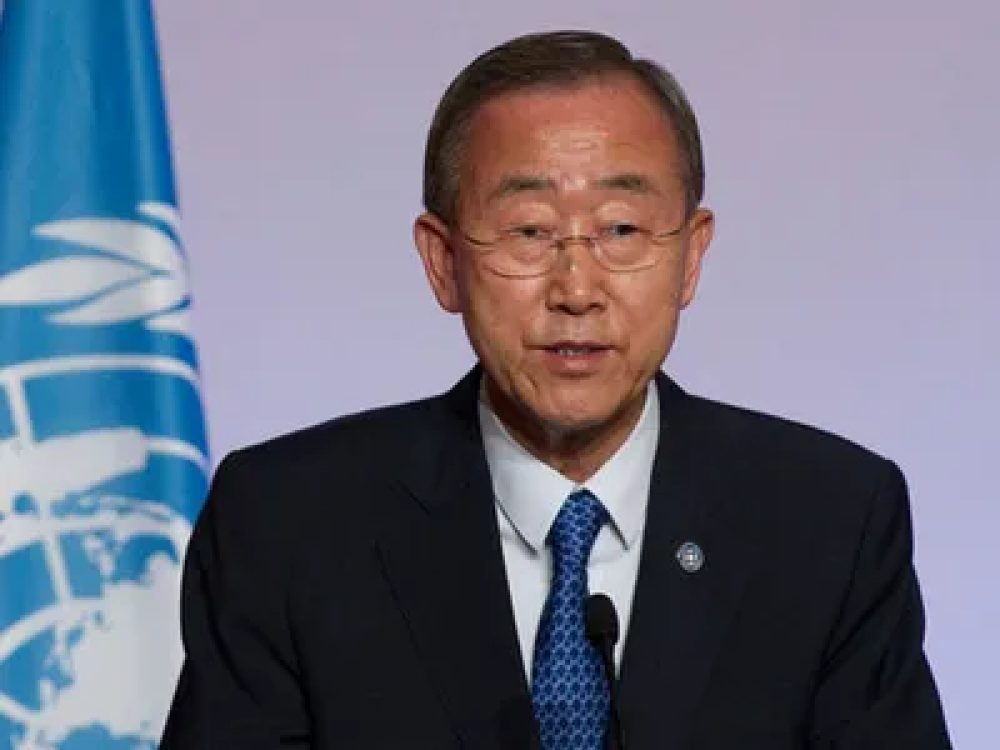
Among the most respected and accomplished statesmen of his generation, Ban Ki-moon is best known for serving as the eighth Secretary-General of the United Nations from 2007 to 2016. Born in the Republic of Korea in 1944, Ban helped steer the UN through a volatile period that included the Arab Spring, nuclear pursuits in Iran and North Korea, the Ebola epidemic, and brutal new conflicts in Central Africa. Throughout his tenure at the UN, Ban is credited with advancing human rights and addressing the climate crisis. Prior to his UN appointment, Ban served for many years in the South Korean Foreign Service. He is a recipient of France's Legion of Honour and was recently named chair of the Global Commission on Adaptation, along with Bill Gates.
In 1962 Ban won an essay contest that earned him a meeting with President John F. Kennedy. When a journalist at the meeting asked Ban what he wanted to be when he grew up, he said, "I want to become a diplomat." Two decades later, Ban enrolled as a graduate student at the John F. Kennedy School of Government. At Harvard, he studied under famed political scientist Joseph Nye, who remarked that Ban had "a rare combination of analytic clarity, humility, and perseverance". In 1984, Ban received his Master of Public Administration from Harvard.
In 2014, Ban's years of public service and remarkable leadership were recognized by his alma mater. During a visit to campus, the UN head received the Humanitarian of the Year award. Presented by the Harvard Foundation, the award drew special attention to all of the good that the statesman's compassionate initiatives have done over the years.
In 2017, Ban reunited with his old mentor, Joseph Nye, for a lengthy public event, "A Conversation with His Excellency Ban Ki-moon." That same year, Harvard announced that Ban had been named the Angelopoulos Global Public Leaders Fellow at the Kennedy School. “I look forward to returning to the Kennedy School, where I have very fond memories of my time as a student,” said Ban. “This Fellowship will be a wonderful opportunity for me to reflect upon my years in public service, to connect with scholars and students throughout the Harvard community, and to continue my work on the important public policy issues I remain very passionate about.”
